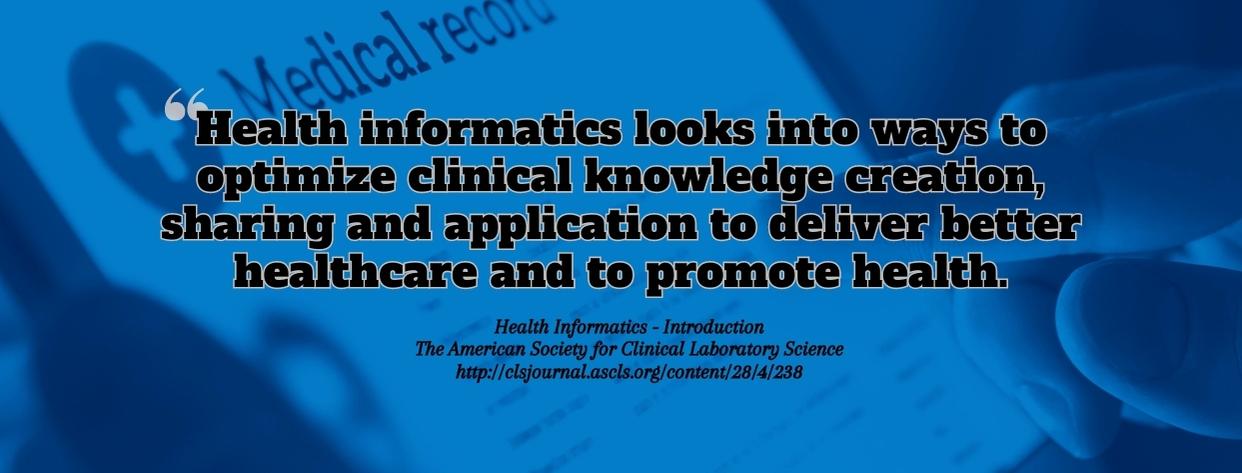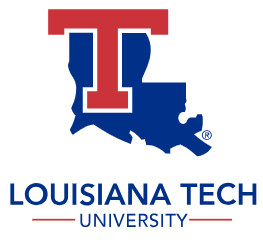Find Your Perfect School
A bachelor’s degree in Health informatics is designed to help students prepare for various careers in the growing healthcare technology industry. Commonly known as “health information systems” or “health information technology,” a degree in Health Informatics is a technology-based field that is dedicated to the data of the medical field. From hospital insurance forms to patient records, this degree covers all of the administrative processes in today’s healthcare business.
As expected from a field that utilizes information technology most of the time, business is indeed booming. Today, the world is growing more and more digital by the day. This means that there will also be an increased demand for professionals who are knowledgeable and adept in computer networks and systems.
But how in demand is Health Informatics? The Labor Statistics Bureau discloses that jobs in health information technology have a 16% job outlook from 2022-2032. This includes informaticists, analysts, and record keepers. Because of this continuous demand for these professionals in the healthcare industry, students are wondering how they become health informatics professionals.
Quick Summarization
In recent years, there has been federal legislation that mandates a nationwide conversion to electronic medical and patient records. Because of this new law, there is a rapid demand for Health Informatics professionals who possess business and IT skills in analyzing data and providing software development for different medical sectors.
An online Bachelor’s in Health Informatics degree program blends healthcare with technology to allow students to combine a passion for data analysis with a passion for helping others. Learners with a strong STEM background (science, technology, engineering, and math), generally excel in these programs.
Health Informatics programs require 120 credits to complete and are divided into major coursework and general education coursework. While health informatics programs have no concentrations, most schools allow students to customize their course path through elective courses.
Methodology
This list of the best schools that offer Bachelor’s in Health Informatics degree programs is based on several factors to provide students with the latest information available in the growing field of health information management.
Each school has its unique qualities in this healthcare field, which is why it’s difficult to rank them in a specific order. Thus, the schools in the list offering online Bachelor’s in Health Informatics programs are randomly listed so prospective students can find the program that best fits their busy schedule, educational needs, and personality.
The best online Health Informatics degree programs in this list are based on several factors, including:
- Delivered as 100% web-based classes or in a hybrid format,
- Features basic coursework offering foundational knowledge in Healthcare Management, including pharmacology, pathophysiology, medical technology, data analysis, health insurance and managed care, data management, research, statistics, and other relevant legal and compliance considerations,
- May offer accelerated degree or fast-track completion options,
- Provides management, leadership, teamwork, collaboration, community involvement, and lifelong learning as critical soft skills,
- Prepares students for master’s degrees and entry-level jobs in Health Informatics,
- Taught by expert instructors with extensive Health Informatics experience,
- Offers federal aid and financial assistance to qualified online students,
- Properly accredited by academic agencies, and recognized by industry organizations relevant to the Health Informatics discipline, including the:
- NWCCU-Northwest Commission on Colleges & Universities
- NCA-North Central Association of Colleges and Schools
- HLC-Higher Learning Commission
- SACSCOC-Southern Association of Colleges and Schools Commission on Colleges
- MSCHE-Middle States Commission on Higher Education
Visit our Methodology page.
10 Best Online Bachelor’s in Health Informatics Degree Programs
Western Governors University
Located in Salt Lake City, UT, Western Governors University is a non-profit online university that utilizes online competency-based learning models. This 100% virtual institution is home to 60 programs scattered across four colleges and prepares them for careers in nursing and healthcare, education, and business.
Western Governors University offers a Bachelor’s in Health Informatics degree program that focuses on concepts in information technology, health care, and leadership practice.
- This Bachelor’s in Health Informatics degree program is CAHIIM-Commission on Accreditation for Health Informatics & Information Management Education-approved.
- In this Health Informatics bachelor’s degree, students will take advantage of the school’s robust courses with a simulation experience that gives them a glimpse of real-world health information management operations and functions.
- Students will learn about medical coding, medical terminology, the business and tech side of healthcare, and the impact of health information management for providers, patients, and payers.
- Like all online programs in Health Informatics, this program will prepare students to become successful in the growing field of health information management and become health information technicians, registered health information administrators, clinical data analysts, and electronic health records specialists, among others.
Western Governors University is NWCCU-accredited.
University of Wisconsin-Extended Campus
The University of Wisconsin-Extended Campus is the online and continuing/professional education arm of the University of Wisconsin System. This extended campus works with all 26 campuses of the UW system, providing leadership, support, and resources to students and adult learners who can’t make it to traditional on-campus education.
The University of Wisconsin-Extended Campus offers a unique Bachelor in Health Information Management & Technology degree completion that is religiously updated to always conform with the growing needs and changes of the field.
- Online students will have courses in Health Information Technology (HIT) and health information management (HIM).
- This HIMT program is a perfect choice for busy adult learners who wish to pursue their careers in health information while balancing family, work, and other commitments.
- Courses are delivered 100% online and may be completed according to the student’s schedules and from virtually anywhere in the world.
As a student in this Health Information Management and Technology program, students will gain the skills they need to succeed in today’s technology-focused healthcare environments. Some of the skills acquired include:
- Human Resources Management
- Strategic Planning and Organizational Development
- Financial and Resource Management
- Programming and Data Management
- Data Security
- Data Analytics/Data Analysis
- Data, Information, and Storage Structures
- Information and Communication Technologies
This HIMT degree is CAHIIM-approved. Students who complete CAHIIM-accredited programs can sit for industry credentialing exams like the Registered Health Information Administrator (RHIA) offered by the American Health Information Management Association (AHIMA).
The University of Wisconsin is NCA-accredited.
Oregon Institute of Technology
Oregon Institute of Technology is a public college in Oregon with a residential campus located in Klamath Falls, Oregon. Oregon Tech offers professionally focused and innovative degree programs in the areas of health, engineering, health, business, applied arts and sciences, and technology.
Oregon Tech offers a brand-new stand-alone program separated from the Information Technology degree, the online Bachelor of Science in Health Informatics, where students get to receive applied real-world education to prepare them for the evolving expectations of healthcare professionals.
- This Health Informatics online education fully prepares students to assume key positions in information technology departments and improve operations and quality for the healthcare systems. They can serve as health information managers, medical records techs, database administrators, and health information technicians, among others.
- This Health Informatics degree online provides a solid background in information systems, business management, computing science, healthcare systems, and healthcare in general, giving students the needed skills and knowledge in the field of health informatics.
- Through this Bachelor’s in Health Informatics, students will gain the right skills to join the job market for high-quality and high-paying positions.
- This is a 120-credit program that costs $294 per credit. Students receive federal financial aid, grants, and scholarships are available.
University of Illinois
The University of Illinois Urbana-Champaign, a public land-grant research university, is the flagship institution of the University of Illinois System. The school offers a tremendous depth and breadth in academics, offering more than 150 undergraduate and over 100 graduate and professional programs delivered online and on campus.
The University of Illinois Online offers several undergraduate and post-graduate programs, including its Bachelor of Science in Health Information Management Degree completion program. This is designed for students who already have a background in information technology, healthcare, or business.
- Students will build upon their current skills, and the program’s curriculum will carefully fine-tune these skills and instills new ones.
- Online students of this degree in Health Informatics are prepared to take the RHIA or Registered Health Information Administrator exam.
- This degree program provides students with skilled instruction in the use and management of information and information systems for healthcare services, health information administration, healthcare reimbursement, and all things related to the health informatics field.
- As prospective students work their way through this online curriculum, they will also delve into essential topics like systems and data analysis, data management, coding, and health information research.
- This is a 63-credit hour program by UIC’s College of Applied Sciences and can be done in 24 months.
The University of Illinois is an HLC-accredited school.
Colorado Technical University
Colorado Technical University is a for-profit private university in Colorado Springs, Colorado. Founded in 1965, it offers at least 80 degree programs on-campus and online.
CTU’s Bachelor in Healthcare Management with a concentration in Health Care Informatics is offered online and is well-reviewed by the US News and World Report.
- In this program, students will develop a stronger understanding of both the information management and business sides of the healthcare industry. The curriculum will cover healthcare regulations and healthcare administration in healthcare organizations.
- This degree in health informatics also focuses on issues like accessibility, data quality, legal and regulatory requirements of electronic medical records, interoperability, and cybersecurity challenges.
CTU features Fast Track exams–a series of mini modules to test students’ knowledge of key course objectives, offering the chance to earn college credits for what they already know. CTU is also noted for its federal financial aid, scholarships, and grants to make the programs both affordable and achievable.
Colorado Technical University is HLC-approved.
Louisiana Tech University
Louisiana Tech University is a public research university located in Ruston, Louisiana, and is part of the University of Louisiana System. The school offers 136 distinct undergraduate degree programs concentrated into 54 majors within 24 fields of study through online and on-site education.
Louisiana Tech’s Department of Health Informatics & Information Management provides exceptional educational leadership and opportunities in the field. One of its online programs is the 120-credit hour Bachelor of Science degree in Health Informatics.
- This online bachelor’s degree program incorporates the disciplines of medicine, information technology, finance, management, and law into one curriculum. Because of this unique mixture, students in this course can choose from different work settings across an array of healthcare environments.
- This Healthcare Informatics degree is Commission on Accreditation for Health Informatics and Information Management Education-approved. Students who complete the program are qualified to sit for the registered examination of the American Health Information Management Association.
- Once the students become healthcare professionals, they are responsible for maintaining, collecting, and evaluating healthcare data that doctors, nurses, and other healthcare professionals rely on for the efficient delivery of care to patients.
Louisiana State University is a SACSCOC-approved school.
Rasmussen University
Rasmussen University is a non-profit private university with different locations around the US. For more than a century, the school has continued to provide higher education options for working adults with goals to push further in the constantly-changing job landscape. Rasmussen University emphasized a dynamic curriculum, innovative programs, and general education skills to empower students through academic excellence and community service and enrichment of the public good.
- At Rasmussen University, students can enroll in any of its online programs, including the Bachelor in Health Information Management Studies to allow students to gain an extensive amount of experiential knowledge to use in their health information management future.
- This online Bachelor’s in Health Informatics with a concentration in health information management is CAHIIM-accredited to support the desires of students to move further in the field with advanced skills in management and leadership, health information security and privacy, health law and compliances, and the emerging and current consumer engagement practices.
- Future health information technicians can save money and time in this online program by taking assessments and transferring in credits.
- This Health Informatics degree and information management program will prepare students for industry certification.
- BLS projects a 28% growth in medical and health services managers, a figure much faster than the average 5% growth for other jobs.
- This online Healthcare Informatics program is designed by industry experts that provide the confidence and skills not only to use the student’s broad knowledge of health information but also to efficiently manage and lead cross-collaborative systems.
Rasmussen University has received the NCA approval.
The City University of New York
The City University of New York is a public university system in New York City and is the biggest urban university system in the United States. It is composed of 25 campuses: 11 senior colleges, 7 community colleges, and seven professional studies.
CUNY offers more than 2,800 academic programs for degree-seeking students both onsite and online. The school developed an online Bachelor in Health Information Management degree program that focuses on the latest healthcare industry standards.
- This bachelor’s degree is perfect for future healthcare professionals who wish to learn the most relevant coursework they need as required by today’s healthcare industry.
- In this Health Informatics bachelor’s degree, students will learn about medical coding, and medical terminology, along with all the necessary knowledge and skills to develop, implement, or manage health information and data systems for reimbursement, quality care, planning, research, and evaluation.
This Health Informatics degree online allows students to learn and demonstrate competency in the five major knowledge domains:
- Health Data Management
- Health Services Organization and Delivery
- Health Statistics, Biomedical Research, and Quality Management
- Organization and Management
- Information Technology Systems
Graduates of this online Health Informatics degree are prepared for different health information professions, both in traditional and non-traditional settings, including information systems analysts, data analysts, health information technicians, clinical data analysts, compliance specialists, privacy officers, health information systems trainers, experts in health insurance companies, and information systems directors.
The City University of New York is MSCHE-accredited.
University of Cincinnati
The University of Cincinnati is an open-research university in Cincinnati, USA, and is one of the oldest schools of higher education in the state. The school has played critical roles in key science and health discoveries and is responsible for many major inventions like the heart-lung machine, antihistamine, the electronic organ, and the oral polio vaccine.
UC has over 426 degree programs and 205 certificates at the undergraduate, graduate, and certificate levels, delivered both onsite and online. Its online Bachelor in Health Information Management degree program is considered one of the best programs by the CAHIIM and is designed to prepare working professionals for the RHIA exam.
This Health Informatics online degree program is a 52-credit program suited for those who wish to start or advance a career in the healthcare industry. Benefits of this Online BHIM program include:
- 100% online with no required campus visits
- Professional practicum so students will have valuable real-world experience
- Personalized feedback and low student-faculty ratios
- The curriculum will prepare students for the RHIA exam
- Students have access to UC’s national healthcare network
- UC includes professional resumé and career development services
- Generous federal financial aid packages, including grants and scholarships
The University of Cincinnati is an NCA-approved institution.
Augusta University
Augusta University is a public research university in Augusta, Georgia, and the state’s academic medical center, with satellite medical campuses in Savannah, Albany, Rome, and Athens. It is part of the University System of Georgia, providing a world-class academic and social community that propels students for different opportunities and success.
Augusta University offers an online Bachelor of Science in Health Information Administration degree program. This online program is called a “2+2”, meaning, students can complete their first two years at any accredited college or university of their choice, and the remaining two years as an HIA student in Augusta.
- This degree will prepare students for informatics-related roles in the healthcare industry.
- Upon completion, graduates can sit for the RHIA or Registered Health Information Administrator credentialing exam.
- The school also offers post-baccalaureate certificate programs in health information administration to allied health professionals or licensed nurses, or to those who have earned a bachelor’s degree in healthcare administration, business, or computer science.
- Augusta University joins in all federal financial aid and student aid programs, as well as private and state programs. It is determined to help students fund their academic needs through scholarships, grants, loans, and service commitment programs and employment.
Augusta University is SACSCOC-accredited.
Four Important Facts about Health Informatics
In the world of information technology, one of the most rapidly growing fields is that of health informatics. These IT professionals utilize their skills in organizing and managing health information data used in doctor’s offices and hospitals across the nation.
Because healthcare facilities are now relying on electronic health records, IT professionals are continuously in demand to help streamline medical care and automate manual processes. If you are contemplating getting a degree in Health Informatics, here are four important facts to know about this career.
There is massive job growth in health informatics.
The BLS says employment in health informatics is expected to grow at a rate of 16% between 2022 and 2032– relatively faster than the usual growth rate of other careers. Additionally, about 6,200 job openings for health information technologists and medical registers are projected each year. Most of these openings are results from the need to replace professionals who transfer to different occupations or exit the labor force.
Health informatics combines three different fields.
As its name implies, the field of health informatics is a combination of three different fields: technology, business, and health care. A health informatics specialist usually works on the technical aspect of health care and uses his skills in increasing efficiency and reducing errors.
There are sub-categories in health informatics.
You can find so many focused areas of study in health informatics., thus future healthcare informatics professionals have the chance to tailor their career preferences based on their areas of interest. These sub-categories in a healthcare informatics degree include healthcare data, bioinformatics, health information management, nursing informatics, and public health informatics.
Health informatics can help minimize costs.
The whole idea behind health informatics is to significantly make the medical industry more efficient and to help minimize costs.
Common Topics Covered in a Healthcare Informatics Degree
When it comes to an online health informatics degree, there is no ‘one size fits all’. Each school is different considering they classify health informatics under different categories and names. A bachelor’s in health information systems degree might not have similar prerequisites as a healthcare administration degree with an informatics concentration. However, most healthcare informatics programs cover almost the same topics, including:
- Introduction to Health Informatics
- Data Analytics
- Electronic Healthcare Systems
- Computer Science
- Business Administration
- Privacy and Security
- Information Technology
- Ethics
- Finance
- Healthcare Coding and Classification
Top Health Informatics Jobs
- Database Administrators
- Clinical/Health Informatics Specialists
- Clinical Informatics Managers/Directors
- Testing Analysts
- Bioinformatics Scientists
- Biostatisticians
Frequently Asked Questions
Is the Health Informatics bachelor’s degree new?
The new federal legislation has significantly changed the face of how the medical data of a patient is recorded, secured, and distributed to others by way of a nationwide electronic system. The EHR (electronic healthcare records) system is a critical part of maintaining up-to-date and accurate medical records and the consolidation of this information for all medical practitioners to access proper care.
With an online Bachelor’s in Health Informatics, students can combine their interest in their medical field with their computer and business skills.
Is an online Bachelor of Health Informatics worth considering?
With the new regulations set about the recording of patients’ medical records, now is the perfect time to get in on the continuous increase of job opportunities in this field. With a 7% job increase between 2021 and 2031, careers in this field are plenty.
How is a Bachelor’s in Health Informatics earned?
There are several ways one can earn a bachelor’s in health informatics degree.
- You can obtain a Bachelor of Science in Health Informatics.
- You can enroll in a Bachelor’s in Healthcare Administration or Healthcare Management program with a concentration on Health Informatics.
- You can earn a Bachelor’s Degree in Business Management with a concentration in Systems Management, Healthcare Administration, or Information Technology Management.
- Some schools offer health sciences degrees with a specialization in technology, business, management, or information systems.
The AHIMA-American Health Information Management Association estimates that on average, those who hold a bachelor’s degree in health informatics take home $63,390 per year for nonmanagerial positions. As for the job type you will do, this will largely depend on your interest. You can earn a Health Informatics degree and use it in practically every sub-field in the healthcare industry, including administration, finance, marketing, insurance, and human resources.
What are the highest-paying jobs with a bachelor’s degree in Health Informatics?
Health Informatics specialists deliver essential and unique services to the health industry, providing nurses and doctors with the needed, up-to-date medical information to correctly diagnose and treat patients. A health informatics program integrates information by evaluating, storing, and retrieving electronic medical records. Healthcare practice, information technology, and management skills are the most desirable and essential in this field.
Health and medical services managers are the highest-paying job for students holding a bachelor’s in health informatics. The Labor Statistics Bureau says health informatics professionals make a median annual salary of $104,830.
Key Points to Ponder
- There are plenty of jobs available for students who earn a Health Informatics degree. The most common entry-level job is a Medical Coder, where you simply input patient data into a computer system within the clinic, hospital, or nursing home.
- Health Informatics professionals provide medical practitioners with up-to-date medical information needed to correctly diagnose and treat patients.
- Health Informatics workers are one of today’s most in-demand jobs in the healthcare industry.
Additional Resources:











